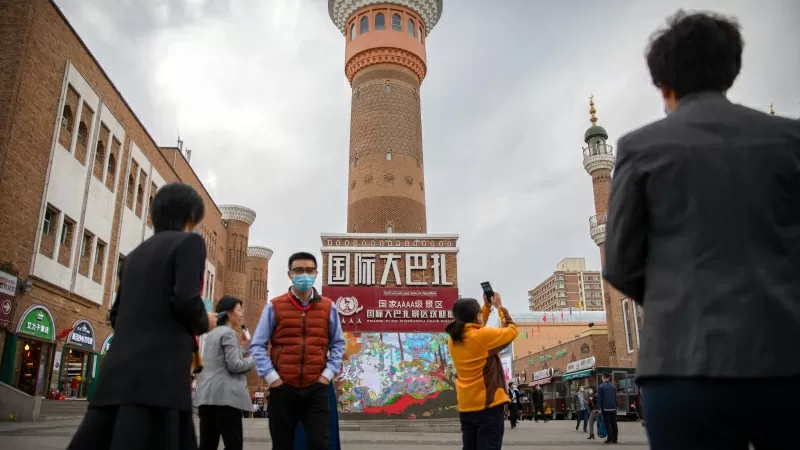China’s western Xinjiang region has long been home to a diverse population of ethnic minorities, including the Uyghurs. However, a recent report released by Human Rights Watch has shed light on a disturbing trend in the region – the systematic replacement of village names to reflect the ruling Communist Party’s ideology. This move is seen as a deliberate attack on the cultural identity of these ethnic minorities and has raised concerns about the erosion of their traditions and heritage.
According to the report, authorities in Xinjiang have been actively changing the names of villages inhabited by Uyghurs and other ethnic minorities, erasing their unique identities and replacing them with names that reflect the Communist Party’s ideology. This includes names that glorify the party’s leaders and policies, such as “Red Village” or “Long Live the Party Village”. This practice is not only limited to Uyghur villages, but also affects other ethnic groups such as the Kazakhs, Kyrgyz, and Mongols.
This move by the authorities is part of a larger campaign to Sinicize the region, which involves imposing Chinese culture and values on ethnic minorities. It is a clear attempt to assimilate these groups into the dominant Han Chinese culture and erase their distinct identities. This is a worrying development, as it not only undermines the cultural diversity of the region but also violates the rights of these communities to preserve their own traditions and way of life.
The report also highlights the impact of this name change on the local communities. For many Uyghurs and other ethnic minorities, their village names hold deep cultural and historical significance. Changing these names without their consent is a direct attack on their sense of belonging and connection to their land. It also creates confusion and disruption in their daily lives, as they are forced to adapt to new names and identities.
Furthermore, the renaming of villages is often accompanied by the demolition of traditional homes and the construction of new buildings that adhere to Chinese architectural styles. This not only destroys the physical landscape of these villages but also erases their unique cultural heritage. It is a blatant disregard for the rich history and traditions of these ethnic minorities, and a clear attempt to erase their presence in the region.
The Chinese government has defended these actions, claiming that it is necessary for maintaining social stability and promoting economic development in the region. However, the reality is that these measures only serve to further marginalize and discriminate against ethnic minorities, pushing them to the fringes of society.
The international community has also expressed concern over these developments in Xinjiang. The United Nations has called on the Chinese government to respect the rights of ethnic minorities and to stop the forced assimilation of their cultures. The US State Department has also condemned the renaming of villages and urged China to respect the cultural identity and human rights of all its citizens.
The Chinese government must listen to these calls and take immediate action to stop the systematic replacement of village names in Xinjiang. It is crucial that the rights of ethnic minorities are protected and that their cultural heritage is preserved for future generations. The diversity of cultures and traditions is what makes our world a beautiful and vibrant place, and it is our responsibility to safeguard it.
In conclusion, the recent report by Human Rights Watch has brought to light a disturbing trend in China’s Xinjiang region – the systematic replacement of village names to reflect the ruling Communist Party’s ideology. This is a clear attack on the cultural identity of ethnic minorities and a violation of their rights. The Chinese government must stop this practice and respect the diversity and traditions of all its citizens. Let us work towards a world where every culture and identity is valued and celebrated.

